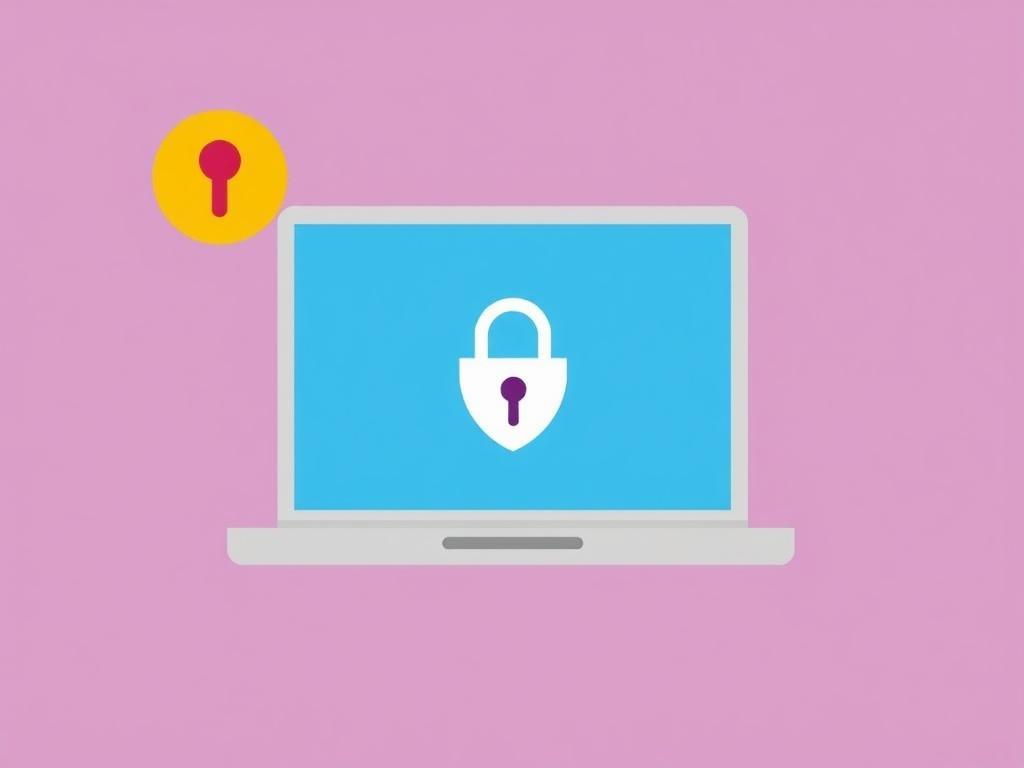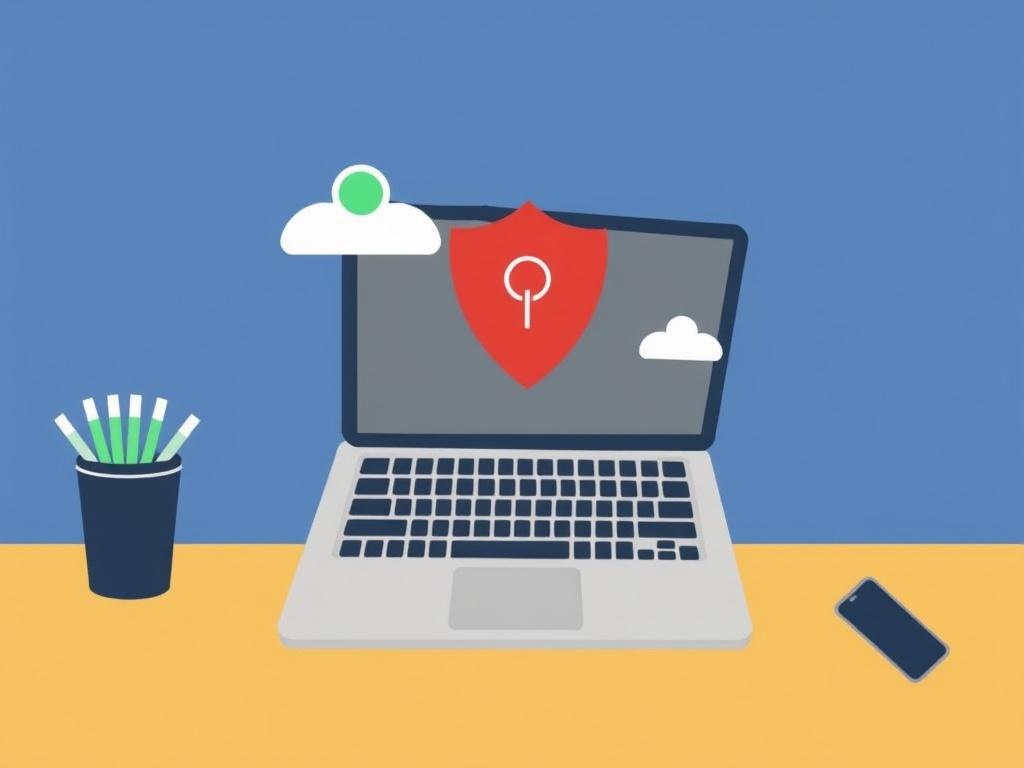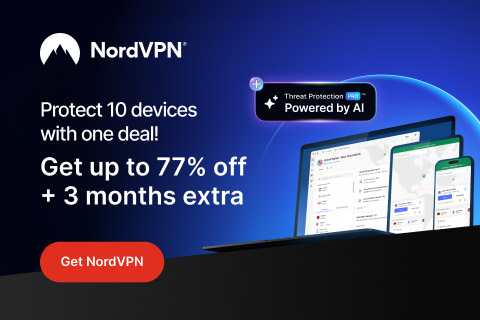Stay Private. Stay Secure. Stay Free.
Trusted by millions worldwide – protect your online life with #1 VPN
- ⚡ Blazing-fast speed on every server
- 🔒 Military-grade encryption & protection
- 🌍 Access content globally without limits
- 📱 Up to 10 devices with one account
In a world where online privacy often feels fragile and public Wi-Fi hotspots are as common as coffee cups, many people wonder about the simple question: can i download vpn on laptop? The answer is almost always yes, and the reasons to do so go beyond merely bypassing regional blocks. A good VPN helps you protect your data from hackers on public networks, keeps your browsing habits private from ISPs and advertisers, and can even help you access content as you travel. The idea behind a vpn for laptop download is straightforward: you install the software, connect to a VPN server, and all your traffic is encrypted and routed through that server. It sounds technical, but the process is surprisingly approachable for most users. In this guide, we’ll walk you through the reasons to use a VPN on your laptop, compare free options with paid plans, explain how it works on a vpn windows laptop, and give you a clear, step-by-step path for how to install vpn on laptop. By the end, you’ll have a solid understanding of what a VPN can do for you, what to watch out for, and how to choose the best vpn for laptops that fits your needs and budget.
Why a VPN on a Laptop Makes Sense
When you’re browsing on a laptop—whether it’s for work, school, or personal use—you’re often transmitting sensitive information: emails, messages, credentials, and payment details. Public Wi-Fi networks, in particular, are notorious for weak security. A vpn for laptop download equips your device with an extra layer of protection by creating a secure tunnel for your data. Even when you’re on a trusted network at home, a VPN can help you bypass data throttling and protect your privacy from advertisers who track your online movements. If you travel or study abroad, a VPN can also help you access local content libraries or services that would otherwise be restricted in your current location. So the question is not only can i download vpn on laptop, but also whether you want the extra layer of privacy, the potential for broader access, and the peace of mind that comes with encrypted traffic.
Free VPN Laptop vs. Paid VPN: What Are the Tradeoffs?
For many users the first instinct is to look for a free vpn laptop option. Free VPNs can be tempting because they don’t require a credit card or a monthly budget, but there are important tradeoffs to understand. Here is a quick, easy-to-scan comparison that helps you decide what to try first. The following table contrasts key aspects of free versus paid VPN services so you can gauge what matters most to you.
| Feature | Free VPN Laptop | Paid VPN (Best VPN for Laptops) |
|---|---|---|
| Data limits | Often capped (daily or monthly) | High or unlimited data |
| Speed and bandwidth | Slow during peak times; throttling possible | Faster, consistently reliable speeds |
| Server options | Fewer servers, location limits | Many servers across many regions |
| Privacy and logging | Unknown or limited transparency | Clear privacy policy, minimal logging |
| Ads and trackers | Often supported by ads | No ads; independent revenue models |
| Customer support | Limited or self-serve | 24/7 support and extensive help resources |
| Reliability for streaming and work | Inconsistent; may fail on tricky services | Consistent access to streaming libraries and work tools |
Beyond this practical comparison, you’ll want to weigh your own priorities. If your goal is casual browsing on a laptop at coffee shops, a free vpn laptop option might suffice for occasional use. If you’re managing sensitive credentials or working remotely, a paid solution is typically the safer, more reliable choice. When you choose to upgrade, you’ll often see a broader feature set: stronger encryption options, a kill switch that protects you if the VPN drops, DNS leak protection, and sometimes specialized servers for streaming or gaming. The key is to align the features with your needs and budget. If you’re asking can i download vpn on laptop and still keep your device fast and secure, the answer is yes—just pick a service that prioritizes privacy, security, and performance. For many users, the distinction between free and paid is less about price and more about trust, support, and overall experience. The golden rule is to read the privacy policy and terms of service before you install anything, especially if you’re considering a free option that could be monetizing your data in unexpected ways.
Understanding the Laptop Landscape: What “vpn windows laptop” Really Means
When people say vpn windows laptop, they’re referring to VPN software that runs cleanly on Windows operating systems, typically Windows 10 or Windows 11. Windows laptops are perhaps the most common devices for VPN usage because they’re used for everything from school assignments to business tasks. The Windows environment has a broad ecosystem of VPN clients, ranging from easy-to-use apps designed for everyday consumers to enterprise-grade solutions with advanced features for IT departments. The practical question is how to get started on a vpn windows laptop, and how to choose a client that integrates well with Windows, respects system resources, and provides predictable performance. The good news is that whether you’re using a modern Windows device or an older machine, there’s typically a compatible VPN client available. The next sections will guide you through selecting the right option and getting it installed on your laptop without a headache.
How to Choose the Best VPN for Laptops

If you’re starting from scratch, you may feel overwhelmed by the array of choices. The best vpn for laptops should fit your needs in several key dimensions: security, reliability, speed, ease of use, and price. Here are the essential criteria to weigh.
- Security and privacy: Look for strong encryption (such as AES-256), a robust protocol selection (OpenVPN, WireGuard, IKEv2), a clear no-logs policy, and a trustworthy jurisdiction.
- Performance: You want consistent speed, minimal latency, and a broad network of servers so you can connect near your location for lower ping and better download/upload speeds.
- Platform compatibility: Confirm the app works smoothly on Windows, and if you ever switch to macOS or Android, ensure the provider offers a seamless cross-platform experience.
- Ease of use: A clean interface, quick connect options, and guided setup are especially helpful for beginners.
- Additional features: A kill switch to block traffic if the VPN drops, DNS leak protection, split tunneling, and access to streaming services if that matters to you.
- Support and transparency: Accessible customer support and a transparent privacy policy build trust and reduce surprises.
- Value and policy: Consider long-term pricing, including discounts for longer commitments, and whether the plan meets your needs (devices, simultaneous connections, etc.).
In practice, you’ll often see that the best vpn for laptops includes a balance of security features, acceptable speeds, and a user-friendly interface. It’s not just about having a VPN; it’s about having a reliable tool you can rely on in your everyday digital life. When you’re evaluating options, try to test features such as the kill switch, how well the service handles streaming restrictions, and whether there are dedicated servers for your region or activities. You can also check independent reviews and performance tests to get a sense of real-world results. Regardless of the choice, once you’ve decided which vpn for laptop download suits your needs, the installation process becomes the gateway to a safer online experience.
How to Install VPN on Laptop: A Step-by-Step Path
Now that you’ve picked a service, the next critical step is how to install vpn on laptop. The exact steps can vary slightly depending on the provider and whether you’re using Windows, macOS, or another operating system, but the general flow is the same. In this section, we’ll outline a straightforward process you can follow to get connected quickly and safely. Whether you’re starting from a free vpn laptop or moving to a paid plan, the installation steps tend to be consistent and intuitive.
- Choose your provider and download the installer. Start with the official site to ensure you’re downloading the legitimate file. Search for the term you used to evaluate the service, like vpn windows laptop, to confirm compatibility and offerings.
- Run the installer and grant the necessary permissions. You may see prompts from Windows or your security software asking for administrator access. Approve these so the VPN client can install correctly.
- Sign in to your account or create a new one. If you’re using a trial or a free option, you’ll still create an account to manage settings and devices.
- Configure basic settings. Most users can opt for the default settings, but you may want to enable a kill switch and DNS leak protection from the settings menu to maximize your privacy and security.
- Choose a server location. If you’re aiming for a particular region for streaming, security, or access to specific services, connect to a server near you or in the desired location.
- Test your connection. Open a browser and visit a site to confirm that your IP address and location reflect the VPN server, not your actual location. Run a quick leak test if you want extra assurance.
- Set up shortcuts and startup behavior. If you want the VPN to start automatically when you log in, you can configure startup settings so you don’t have to remember to connect manually every time.
- Revise privacy preferences and permissions. Some VPNs offer browser extensions or additional features; decide whether to enable them and review what data they may collect.
- Maintain your software. Check for updates regularly and keep your antivirus software in the loop to minimize compatibility issues and security gaps.
As you work through these steps, remember to consider your user experience. If you’re new to VPNs, you might be looking for how to install vpn on laptop with minimal fuss. Many providers emphasize a single-click connect or smart connect features that pick the best server for your location and purpose. If you’re using a business or school device, ensure you have permission to install third-party software and that the VPN use complies with your policies. The goal is to have a stable, secure connection that you can rely on every day, without the installation becoming a barrier to your online activities.
Practical Tips for “Best VPN for Laptops” Use

Choosing the right VPN is only part of the equation; using it effectively is another. Here are practical tips that help you get the most out of your vpn for laptop download and ongoing experience.
- Test for leaks: Use a reliable leak-detection site after you connect to a VPN to confirm that your real IP address isn’t leaking. This is a quick check you can perform after you complete the steps to how to install vpn on laptop, especially if you’re streaming content or handling sensitive information.
- Optimize for speed: If you notice lag or buffering, switch to a server closer to your physical location or try a protocol known for better performance, such as WireGuard, which is common in many modern vpn windows laptop clients.
- Be mindful of data caps: Free vpn laptop options may impose data or speed limits. If you’re a heavy user, consider a paid plan that removes caps and provides better reliability.
- Understand your privacy policy: Even with a VPN, your privacy also depends on the service’s logging practices. Read the policy to understand what is kept, what is discarded, and under what circumstances data might be shared.
- Use a kill switch consistently: The kill switch prevents data leaks if the VPN drops. This is a crucial feature for anyone who values privacy and uses public networks regularly.
- Customize DNS settings if needed: Some people prefer to rely on the VPN’s DNS servers; others want to use their own DNS for speed or compatibility reasons.
- Keep devices and apps updated: Regular updates help protect against new vulnerabilities and ensure compatibility with the latest VPN client features.
While you’re thinking about the best vpn for laptops, you may also consider how often you’ll use the VPN across devices. If you have multiple devices—such as a laptop, tablet, and smartphone—most paid plans offer a certain number of simultaneous connections. This is a practical consideration for households or people who want to protect all their devices without juggling separate subscriptions. If you’re primarily using a vpn windows laptop to study or work from campus networks, a reliable client that minimizes battery drain and maintains stable connections will make a big difference in your daily routine.
Security, Privacy, and Performance: What You Should Expect
A VPN’s value is not just about hiding your IP address; it’s about creating a safer online environment for your activities. As you decide how to install vpn on laptop, you’ll encounter a few core tradeoffs between security, privacy, and performance. The strongest VPNs use robust encryption, trusted protocols, and a transparent privacy stance, but you may see some slowdown as your traffic is encrypted and routed through a server. Understanding these tradeoffs helps you set realistic expectations and avoid disappointment when streaming or gaming on a laptop.
Here is a concise overview of common protocols and how they typically affect performance and security. The table below is a quick reference you can use while comparing options in your search for the best vpn for laptops.
| Protocol | Security | Speed | Compatibility | Notes |
|---|---|---|---|---|
| OpenVPN | Very strong, widely trusted | Moderate to good; can be slower on some networks | Excellent on Windows, cross-platform | High compatibility; solid security, many options |
| WireGuard | Strong; newer, streamlined | Typically very fast | Great on modern devices; growing support | Simple code, efficient; ideal for performance |
| IKEv2 | Good security; fast on mobile | Fast; especially good on mobile networks | Good on Windows and iOS; sometimes limited on older devices | Stable for mobile use and roaming |
In practice, many users find that WireGuard-based implementations offer the best balance for a vpn windows laptop, delivering lower latency and higher throughput while maintaining strong cryptography. If you’re new to VPNs, you might start with a provider that offers OpenVPN as an option and then experiment with WireGuard or IKEv2 if you’re seeking better speeds. You can also look for “no-logs” assurances and a reputable privacy policy to ensure your activities aren’t being logged and sold to third parties. If your concern is streaming, confirm that the provider has reliable servers in the regions you want to access and that they actively work to circumvent common blocks. This approach helps you get consistent results with fewer surprises. Above all, remember that a VPN is a privacy tool, not a magic shield. It won’t protect you from all online threats, so maintain good security habits, such as using strong passwords, enabling two-factor authentication where available, and keeping your software up to date.
Common Questions About VPNs on Laptops
To help you further, here are quick answers to common questions people ask when they’re considering a vpn for laptop download.
- Is a VPN legal? In most parts of the world, using a VPN is legal for personal use. However, some countries restrict VPN services or require government-approved providers. Always check your local laws before relying on a VPN for sensitive activities.
- Will a VPN slow down my laptop? It can, especially if you use older hardware or run multiple resource-intensive applications. However, modern laptops usually handle VPN workloads quite well, especially with efficient protocols like WireGuard.
- Can I use a VPN on a laptop for streaming? Yes, many VPNs are designed to bypass regional restrictions on streaming services. Look for a vpn for laptop download that explicitly supports streaming and has a track record of success with your preferred platforms.
- Do free VPNs keep my data private? Free options often come with tradeoffs such as data caps, limits on server locations, and potential data collection. If privacy is a priority, a reputable paid service is usually a safer bet.
- What about corporate or school devices? Some organizations restrict third-party VPN software. If you’re using a work or school laptop, verify policy guidelines and seek IT approval before installing any VPN client.
What to Do If You Hit a Snag: Troubleshooting Quick Fixes
Even with careful planning, you may run into hiccups when you try to download and install a VPN on your laptop. Here are quick fixes to common problems that pop up during the process.
- Connection problems after installation: If you can’t connect, check your internet link, confirm your credentials, and try a different server. Sometimes a restart of the VPN client or the computer clears the issue.
- Kill switch isn’t working: Ensure the feature is enabled in the VPN’s settings, and test by disconnecting your internet to see if the VPN blocks leaks as intended.
- DNS leaks: If your real address leaks despite using the VPN, switch to the provider’s DNS settings or enable DNS leak protection within the app.
- Slow speeds: Switch to a nearby server, try a different protocol (if your VPN supports it), or temporarily disable any bandwidth-heavy background apps.
- Browser-only VPN extensions aren’t enough: Desktop VPN apps often provide broader protections than browser extensions. Use the full client for comprehensive coverage on your laptop.
Real-World Scenarios: How People Use VPNs on Laptops
People use VPNs on laptops for a wide range of practical reasons. Here are some common scenarios and how a vpn windows laptop setup makes a difference.
– Remote work: Strong privacy and secure access to corporate resources when you’re away from the office. A robust client with enterprise-grade features can be a smart investment for freelancers and employees alike.
– Travel and access: When you’re in a new country, a VPN helps you access the content you’re familiar with back home and keeps your data protected while you use hotel networks or public batches of Wi-Fi.
– Personal privacy: Routine protection against data brokers and advertisers who track your online behavior, especially when you’re using social platforms or conducting private searches on a shared device.
– Streaming and gaming: Access regional libraries, lower ping, and smoother streaming or gaming experiences on a laptop, with servers tailored to your needs.
If you’re new to the concept of privacy-aware browsing, this practical perspective can help you see the value of a vpn for laptop download in everyday life. The benefits aren’t just about hiding your location; they’re about controlling who can see what you do online and where you do it from, all while preserving a smooth, convenient user experience.
Putting It All Together: Your Personalized Plan
So, how should you approach choosing and installing a VPN on your laptop? Start by defining your priorities—privacy, streaming, business use, or simply securing public Wi-Fi. Then look for a service with a clear no-logs policy, strong encryption, a robust server network, and positive real-world performance reviews. If you’re curious about the exact steps others take, you’ll often see a routine that includes verifying compatibility with vpn windows laptop, downloading the installer from the provider’s official site, and following an intuitive setup flow that requires only a few clicks. For those who want maximum flexibility and durability, investing in a best vpn for laptops with features like a kill switch, split tunneling, and reliable customer support can pay off in the long run. As you work through the decision, you’ll naturally encounter the phrase how to install vpn on laptop in your research, and understanding the common steps will demystify the process.
Examining Privacy and Legal Considerations
Every user should be mindful of privacy implications and the legal context of VPN use. A dependable vpn for laptop download can dramatically enhance your privacy, but it’s not a license to engage in illegal activities. Respect local laws, employer policies, and terms of service for the platforms you use. Look for a provider that publishes a transparent privacy policy and a clear description of data handling practices. If you’re traveling to countries with strict censorship or monitoring, you’ll appreciate having a tool you can rely on, but you should always stay informed about the legal status of VPNs in your location. The best approach is to treat your VPN as a privacy enhancement rather than a loophole, ensuring you use it responsibly and legally.
Maintenance and Long-Term Use
Once you’ve completed the vpn for laptop download and installed the client on your Windows laptop or another device, you’ll want to keep everything up to date. Regular software updates improve security, stability, and performance. It’s a good habit to check for updates every few weeks or when you notice a decline in performance. If you rely on your laptop for work, you may also want to configure automatic updates so you never skip a critical patch. In addition, periodically review your server selections and test your connections to ensure you’re still getting the performance you expect. Over time, you’ll likely settle into a routine that keeps your device secure without sacrificing speed or usability.
Conclusion
Conclusion

